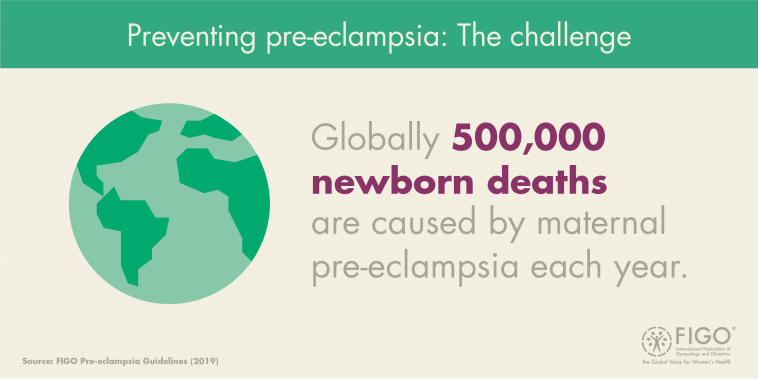Integrating Preeclampsia risk assessment in Hong Kong

In our 2019 Pre-eclampsia Guidelines FIGO called for countries to screen all women in the first trimester, integrating pre-eclampsia risk assessment as an integral part of basic first-trimester evaluation protocol.
Professor Liona Poon, Member of the FIGO Pregnancy and NCDs Committee, shares her commitment to integrating Pre-eclampsia risk assessment in Hong Kong.
In Hong Kong, we aim to provide the best care for our pregnant women. We have introduced first trimester screening for pre-eclampsia as a self-financed item while we negotiate with the Hospital Authority for the city-wide implementation of the screening programme. In general, in Hong Kong, it takes approximately three years for the introduction of a new care pathway.
I launched an implementation study in January 2020. Essentially, all women with singleton pregnancy attending for routine first-trimester Down syndrome screening are offered pre-eclampsia screening with the combined test of maternal factors, mean arterial pressure, uterine artery Doppler and serum placental growth factor.
High-risk women (risk >1:100) are advised to start aspirin 160 mg daily from 11-14 weeks until 36 weeks. During the implementation study, we will collect data on feasibility, acceptability and safety on the first-trimester screen and prevention programme. In January 2020, we also increased aspirin dosage from 100 mg to 160 mg daily for all twin pregnancies, per FIGO guidance, a process that is now routine clinical practice.
Last year our FIGO Pre-eclampsia Guidelines recommended all countries adopt and promote strategies to ensure quality research and eventual consensus regarding specific parameters that can be impacted both by population characteristics and resource settings.
I believe that other countries can learn from how Hong Kong now integrates Pre-eclampsia risk assessment into antenatal care. Right now, I am working with China, Taiwan, the Philippines, Vietnam, Malaysia, Japan, Thailand, Indonesia, Singapore, to introduce the same implementation study. In the centre’s where there is an infrastructure for first-trimester Down syndrome screening, it is easier to implement pre-eclampsia screening.
The measurement of blood pressure is part of routine antenatal care, but in Hong Kong we advocate for measurement using a standardised protocol. Serum placental growth factor is measured in the same blood sample collected for Down syndrome screening with the use of the same analyser, but with an additional cost.
The measurement of uterine artery Doppler requires additional training. In Hong Kong, we have run hands-on training workshop three times in the past two years to train as many ultrasound providers as possible.
Addressing hypertension and pre-eclampsia is a critical dimension in reducing maternal and perinatal risks, and preventing long term non-communicable diseases (NCDs). Hypertension and pre-eclampsia are fast becoming priority global health issues given its significant adverse contribution to maternal and newborn child health and the global NCD epidemic.
FIGO calls for countries to screen all women in the first trimester, integrating pre-eclampsia risk assessment as an integral part of basic first trimester evaluation protocol.